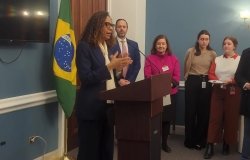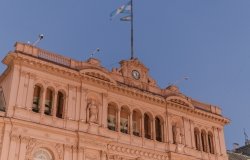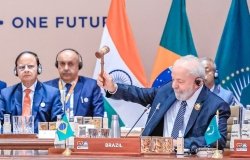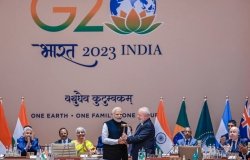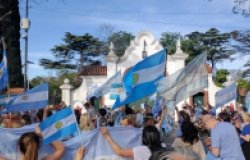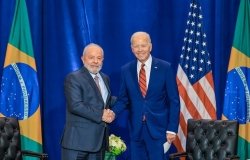
A blog of the Brazil Institute
Lula’s Growing Calls for “De-Dollarization” and the G20
The question arises: How committed is the Brazilian government to actively pursuing the “de-dollarization” of the global economy? Furthermore, does this stance hold significance in the context of Brazil’s G20 presidency?
Since returning to power, President Luiz Inácio Lula da Silva has been highly critical of the dollar system, characterizing it as an unjust and anachronistic tool of U.S. dominance that undermines the interests of the “Global South.” During a visit to Shanghai in April, Lula hinted at the idea of a BRICS currency as an alternative to the U.S. currency. Notably, China faces a range of U.S. sanctions, export controls, and other financial coercive measures with multiple goals, including blocking Chinese access to sensitive technologies. Russia, another BRICS member, has been under an unprecedented Western sanctions regime following its invasion of Ukraine.
In South America, Brazil has recently engaged in discussions with Argentina regarding establishing a digital currency for trade and conducting bilateral commerce using the renminbi. Both initiatives are unlikely to prosper, particularly after the November election of Javier Milei, who campaigned on the platform of dollarizing the economy. Months before taking the position of Brazil’s Finance Minister, Fernando Haddad also called for a South American common currency to safeguard the region’s “monetary sovereignty” vis-à-vis the dollar.
The question arises: How committed is the Brazilian government to actively pursuing the “de-dollarization” of the global economy? Furthermore, does this stance hold significance in the context of Brazil’s G20 presidency?
Like his first two presidential terms, establishing a more multipolar world order remains a fundamental aspect of Lula’s foreign policy. While discussions about de-dollarization align with this overarching objective, Brazil is unlikely to take a leading role in any substantial effort to undermine the dollar, including through the G20 – at least for now. This reluctance stems primarily from Brazil’s position in the global economy and current foreign policy priorities in the short to medium term.
Brazil is highly dependent on the dollar, with over 80% of its foreign reserves held in U.S. currency. Less than 5% are in renminbi despite China being Brazil’s largest trading partner. In contrast to Beijing or Moscow, Brasília lacks a significant external incentive – particularly the threat of sanctions – to swiftly alter the composition of its reserves or venture into experimental payment systems. Meanwhile, plans for South American monetary integration appear distant from reality. Since 2008, Brazilians and Argentines have been able to trade in local currency. Still, the dominance of commerce in dollars persists – the U.S. currency is more stable, liquid, and globally accepted than the real or the peso. The future of Mercosur is even more uncertain now, given the collapse of free trade negotiations with the European Union, and South America remains politically and economically fragmented.
On the diplomatic front, the Brazilian government has more urgent priorities, a stance that will be evident during its G20 presidency. The primary thematic focus revolves around social and environmental justice, with Brazilian policymakers striving to elevate these concerns to the top of the agenda. Lula’s diplomacy has also been overwhelmed by a series of adverse global events – the conflict in Ukraine, the war between Israel and Hamas, the crisis in Venezuela, Milei’s victory in Argentina, and more. Little time and political capital are left to be spent on ambitious de-dollarization initiatives.
Despite his talk in Shanghai, Lula would encounter significant domestic opposition to any currency initiative under the BRICS, which may soon include Iran, Saudi Arabia, Egypt, UAE, and Ethiopia. The Brazilian leader will likely continue to speak against the dollar’s dominance to mobilize his base at home and enhance his profile in the Global South. Yet this discourse is unlikely to translate into policy anytime soon, including concerning the G20.
About the Author


Brazil Institute
The Brazil Institute—the only country-specific policy institution focused on Brazil in Washington—works to foster understanding of Brazil’s complex reality and to support more consequential relations between Brazilian and US institutions in all sectors. The Brazil Institute plays this role by producing independent research and programs that bridge the gap between scholarship and policy, and by serving as a crossroads for leading policymakers, scholars and private sector representatives who are committed to addressing Brazil’s challenges and opportunities. Read more


